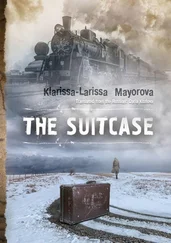I’ve been bedridden for a week!
He doesn’t mean right this second. He’s just wondering if you know when you might—
That man is a broken record.
That man is eighty years old. Besides, you can’t deny that you’ve hardly spent any time there this year.
The summer’s barely begun!
It’s August.
In my condition, said Pasha, the city’s safer. He was coming to dread these communications, in which the dacha was invariably mentioned — when would they be going, how were the raspberry bushes faring, what about Bym, the neighbor’s blind golden retriever? The Nasmertovs had been gone almost twenty years, yet their questions grew increasingly elaborate, as if they’d gone on a brief vacation and left Pasha the designated caretaker of their property in the interim. Now they were getting suspicious. Throughout the previous summers, when he and Nadia had resided at the dacha, there had been plenty to report about the state of the crops and the neighbors. This year Pasha had no choice but to lie about his visits. Just as Nadia had kept the Potemkin apartment, she had claimed the dacha, which Esther’s parents had purchased with their life savings and considered their treasure, the only valuable possession they could pass on to their daughter. Esther had loved that dacha almost as if it had a heartbeat. Perhaps Nadia had the capacity to feel a measure of shame — Pasha had surmised this when his father called last week to ask why the dacha’s landline had been disconnected. Pasha was a terrible liar, but his father was begging to be duped. So Pasha obliged. The line had been severed during a freak storm, and they had yet to install a new one. Robert was satisfied. No one would doubt Pasha’s capacity for procrastination. This meant that Nadia — a woman who barged in on Pasha’s poetry seminars at the university to tell him off in front of his impressionable students — didn’t have the courage to inform Robert that she was effectively stealing the dacha from them, that from then on in it was to be a rehabilitation home for her cousins. Nadia had never enjoyed spending time at the dacha herself. It took weeks just to persuade her to leave the city. Her cousins, however, were in permanent need of convalescing by the sea.
There’s a reason I called, and it wasn’t just to nag, said Marina.
That’s a relief.
After a momentary pause, she resumed. It’s about Frida.
Dad’s briefed me.
Marina exhaled. Then gave a lighthearted laugh. So you already know?
That she’s—
Coming.
I was under the impression that she was already home. Dad told me she’s not so fond of medical school.
She’s been home for a while. Summer break in this country begins in the winter and ends in the fall. What I meant was that she’s coming to Odessa. I hope you’re free on Thursday to pick her up from the airport.
Thursday! cried Pasha.
RUSSIAN POETS DIDN’T do airport pickups. They sent their new wives to fetch long-lost nieces. Sveta was more than happy to do it. She didn’t have a car or a driver’s license, but she had an industrious half brother, Volk. He took care of things. He made a cardboard sign that Frida passed by four or five times in a benzodiazepine haze before realizing that the emaciated man with the deviant’s ponytail and mesh camouflage vest was welcoming her.
He wasn’t quick on the uptake. Frida’s attempts to relate that she was the person for whom the sign was intended weren’t as effective as she might’ve hoped. Once Volk finally apprehended that the disheveled lady wasn’t distracting him from the task but was the task itself, he shook off the shackles of concentration that had been keeping him static and grew animated and twitchy. Apologies began to issue. He was sorry for motioning her away as she’d tried repeatedly to introduce herself; for his poor vision and laziness, as he’d been due to make a visit to the oculist for decades; for his cardboard sign, which was too small and in Cyrillic; for the airport personnel and security guards, who were giving her such awful stares. (Really? All of them?)
Her heart intensified its drum as she charged at the automatic doors separating her from Odessa air, like Moses marching at a sea that didn’t split. Momentum brought her cheek up against the glass. Peeling herself off, she stepped back, dumbstruck. Volk whipped out a pocketknife. He inserted the blade into the crack between doors and flipped his wrist, creating a space that his fingers could squeeze through, and proceeded to very unautomatically pry apart the doors. He led her to a woman who was an amalgamation of so much color, fabric, mood, and texture that the eye refused to absorb her as one whole. Sveta leaned against the railing, puffing on a cigarette. She took the apologizing torch. She was profoundly sorry for not waiting inside, she hadn’t expected Frida to come out so quickly, usually they detained Americans for at least an hour. You must seem extra harmless, she said. She was sorry for the air so saturated with exhaust — no regulations in Ukraine — and the lack of wheelchair-access ramps. Not that we need them, knock on wood.
A bottle of Coca-Cola awaited in the trunk of Volk’s burgundy Volvo. It was practically steaming. From a vest pocket, Volk retrieved a stack of Dixie cups. Sveta Russian-dolled out the cups on the sun-blazed hood of the car, pouring until the brim caught the froth. They toasted in the parking lot. It was a superb parking lot. There was no painted grid delineating individual spaces, and the cars were strewn about as if abandoned by a giant child called to tea. Frida squinted into the distance, gulping her strange drink. It was a syrup made from the fur of an old grizzly, cooked up in a cauldron on the outskirts of town by a lady who mixed cat food into everything she touched and blotted the sores on her ankles with cotton balls that got stuck under her fingernails only to fall into the cauldron that had to stand on the open flame for many a day and be constantly stirred, the last ingredient being a mysterious powder responsible for the torturous effect: With the first sip, Frida almost choked and quit drinking, but a moment later the papillae of her devastated tongue were pleading for another wash of nuance murder.
An alley of lindens led away from the airport like a stitch closing a seam. Volk steered the automobile as if it were half spaceship, half wild bull (it was a stick shift), while Sveta bounced alongside, enumerating the cultural possibilities on offer. In the backseat Frida lay half asleep, clutching the empty bottle and belching in varying volumes and intensities, the loudest of which roused her for a fraction of a second, enough to catch that the Opera House was closed for the season and last week Odessa’s only Caravaggio had been stolen. This suited her fine. Ideally all must-see treasures would be stolen, monuments defaced, cultural sights shut down for the season or for renovations or for good. They were distractions from the essential. Where or what the essential was, Frida knew not, but it certainly wasn’t an opera house or a Caravaggio.
They were dropped off on a corner that, if a complaint must be made, was a bit too central, open, unencumbered. A large, lively intersection. Discount shoe stores and a fruit stand, determined pedestrians, briefcase collisions, traffic ruckus. It could’ve been an intersection in any respectable metropolis. Nothing thwarted, secretive, particular. Lest it seem too benign, a three-legged mutt hobbled into the road just as a tram was rounding the corner. There was screeching, a yelp tapered off abruptly. They entered a courtyard that proved soundproof. The street turned off. A faucet turned on. Snores emanated from a shattered window.
On a tucked-away porch, in a low canvas chair, Pasha was hidden behind globular hirsute knees and a laptop. The image struck Frida as ridiculous, and she laughed. Pasha laughed, too, as if something inherent in their reunion, and not in him, was funny, which made Frida stop laughing and cross her arms. There was no outpouring of affection, no messy reunion scene here. For a reunion Pasha would’ve had to register a separation. His greeting, after his giggle, was brief and casual, as if Frida were a fixture in his life, rather like the floor lamp. Taking her niece in anew, Sveta said, Look how big she’s grown! Can you believe how the years passed? Though she’d never seen Frida before today, the lack of a reference point wasn’t about to keep her from marveling. If this was an attempt to elicit a proper response from Pasha, it didn’t work. He wasn’t even capable of tagging on to Sveta’s absurd sentiments. Yet with nobody to feel these things, she seemed to really feel them. She was truly overcome by Frida’s presumed transformation.
Читать дальше












